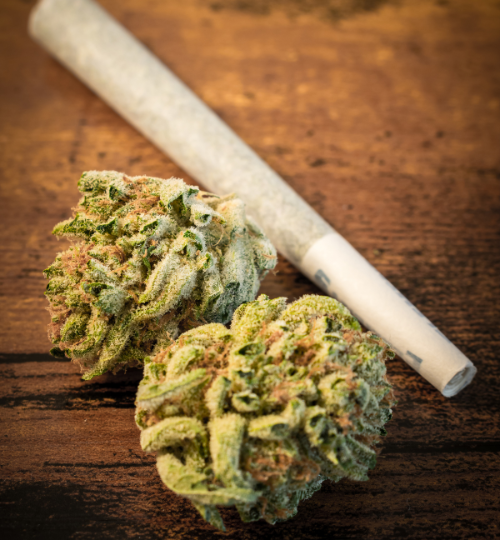The marijuana law in Pennsylvania is based on the premise that drug use is harmful to society. Marijuana possession (with two exceptions) and distribution are both illegal, and those caught violating these laws can face severe penalties. While surrounding states have different laws, the bottom line is marijuana is illegal in Pennsylvania.
If you have been arrested or are facing marijuana charges, you will need the services of a marijuana lawyer experienced in drug cases with a proven record of defending clients. The attorneys at Grace Legal have years of experience as public defenders and private criminal defense attorneys and therefore have the knowledge and experience to provide aggressive representation to achieve the best possible outcome when faced with drug crimes.

Overview Of The Marijuana Laws In Pennsylvania
Pennsylvania has enacted laws making the use and possession of marijuana illegal. Notwithstanding any rumors about decriminalizing marijuana or bills that may be working their way through the legislature, marijuana remains a Schedule I Controlled Substance. This means you can be arrested and if convicted face serious consequences.
Here are some key points regarding the marijuana laws in Pennsylvania:
- Possession and Cultivation:
Possession of marijuana for recreational purposes is illegal in Pennsylvania. Possession of a small amount of marijuana (up to 30 grams) for personal use is considered a misdemeanor offense, punishable by a fine and potential jail time. Cultivating marijuana plants for personal use is also illegal and can result in charges. - Penalties:
The penalties for marijuana-related offenses vary depending on the amount possessed, the intent of the individual, and any prior convictions. Possession or sale of larger quantities of marijuana can lead to more severe penalties, including higher fines and longer prison sentences. - Decriminalization:
Several cities in Pennsylvania, including Philadelphia and Pittsburgh, have enacted local ordinances that decriminalize the possession of small amounts of marijuana. Under these ordinances, individuals caught with a small amount of marijuana may face civil penalties, such as fines, rather than criminal charges. - Medical Marijuana:
Pennsylvania has legalized the use of marijuana for qualifying patients with a valid marijuana card. Patients with certain qualifying medical conditions, such as cancer, epilepsy, chronic pain, and more, can obtain marijuana from licensed dispensaries. However, it is important to note that patients must follow specific guidelines and regulations established by the state. - Federal Law:
It is important to note that marijuana remains classified as a Schedule I controlled substance under federal law, regardless of state laws. This means that the federal government can enforce federal drug laws in states where marijuana is legal for medical or recreational use and pursue federal criminal cases. - Recreational Marijuana:
Recreational marijuana is not legal in Pennsylvania. However, Pennsylvania has enacted a medical marijuana program that allows qualifying patients to access and use marijuana for therapeutic purposes.
It’s crucial to keep in mind that laws and regulations regarding marijuana can change over time. Pennsylvania marijuana laws could in fact change but until they do marijuana cases will continue to be pressed by prosecutors.
Medical Marijuana Laws
Pennsylvania’s medical marijuana program permits the use of marijuana for patients diagnosed with certain qualifying medical conditions. These conditions include cancer, epilepsy, multiple sclerosis, post-traumatic stress disorder (PTSD), chronic pain, Crohn’s disease, glaucoma, and other debilitating conditions.
These are key components of the law:
- Patient Registration:
To participate in the marijuana program, patients must register with the Pennsylvania Department of Health and obtain a marijuana ID card. Patients must have a valid certification from a registered healthcare provider confirming their qualifying condition. - Caregivers:
Patients who require assistance with obtaining and administering marijuana can designate a caregiver. Caregivers must also register with the Department of Health and undergo a background check. - Licensed Dispensaries:
Pennsylvania has established a network of licensed marijuana dispensaries where registered patients can purchase marijuana products. These dispensaries are regulated and must adhere to strict guidelines regarding product quality, safety, and patient confidentiality. - Allowed Forms of Medical Marijuana:
The Pennsylvania marijuana program permits the use of marijuana in various forms, including pills, oils, topicals, tinctures, vaporization, and certain forms of edible products. Smoking marijuana is still prohibited under the state law. - Legal Protections:
Registered patients and caregivers are protected from state-level prosecution for possession and use of marijuana within the program’s guidelines. - Employment and Housing Protections:
Pennsylvania law provides certain employment and housing protections for registered marijuana patients. However, employers and landlords may have specific policies and restrictions regarding the use of marijuana, so it’s advisable to review individual policies and seek legal advice if necessary.
Notwithstanding the legality of medical marijuana in Pennsylvania you could still find yourself charged. If that’s the case you will need a marijuana attorney to protect your rights and mount the criminal defense you may have to the charge.
Penalties for Violation of Marijuana Law
Marijuana drug charges, like many other drug crimes, are driven by the quantity possessed or involved in your drug case. As with any crime, the prosecutors will have to convince a jury beyond a reasonable doubt that the drugs in your possession were illegal, that the police officers had probable cause to arrest you, and that your Constitutional rights were not violated.
Upon conviction of a marijuana drug crime, there will be penalties. These include:
Possession
- Possession of a Small Amount:
Possession of up to 30 grams (approximately one ounce) of marijuana for personal use is classified as a misdemeanor in Pennsylvania. The maximum penalty for a first offense is 30 days in jail and/or a fine of up to $500. Subsequent offenses may result in increased penalties. - Possession of a Larger Amount:
Possessing more than 30 grams of marijuana is considered a misdemeanor. The penalties for possession of larger amounts can vary based on the quantity, but generally, they can include imprisonment for up to one year and fines of up to $5,000.
Sale or Distribution
The sale or distribution of marijuana, regardless of the amount, is a criminal offense in Pennsylvania. Distribution of 30g or less of marijuana without compensation is a misdemeanor punishable by up to 30 days in jail and a fine of up to $500. The sale of more than 30 grams is a felony punishable by 2.5 – 5 years in jail and a $15,000 fine for a first offense.
Growing
Cultivating marijuana plants is illegal in Pennsylvania, both for personal use and for sale. Growing marijuana, even with no intention of selling it, is a felony and is punishable by 2.5 to 5 years in prison and $15,000 in fines. The Pennsylvania Sentencing Guidelines state that possession with intent to deliver less than 10 plants is a felony.
Buying
- Buying from Illegal Sources:
Purchasing marijuana from illegal sources, such as street dealers or unlicensed sellers, is against the law in Pennsylvania. The penalties for buying marijuana can vary depending on the quantity involved, the intent, and any prior convictions. Generally, buying marijuana can be classified as a misdemeanor or a felony, depending on the circumstances. - Personal Use Quantity:
If the amount of marijuana being purchased is considered a small amount for personal use, the penalties may be less severe. As mentioned earlier, possession of up to 30 grams (approximately one ounce) of marijuana is classified as a misdemeanor in Pennsylvania. The maximum penalty for a first offense of possession of a small amount is 30 days in jail and/or a fine of up to $500. It’s important to note that these penalties apply to the possession, but the act of purchasing marijuana can still be subject to legal consequences. - Intent to Distribute:
If the authorities have evidence suggesting that the individual was purchasing marijuana with the intent to distribute or sell it, the penalties can be more severe. Second-degree misdemeanor– Up to two years in jail, and a max fine of $5,000. First-degree misdemeanor–Up to five years in jail, and fines reaching $10,000. Third-degree felony– Up to seven years imprisonment, and a max fine of $15,000.
Grace Legal: Aggressive Representation
The lawyers at Grace Legal have years of extensive knowledge of marijuana laws and have handled numerous cases with a proven track record in court. They served as public defenders prior to becoming private practice defense lawyers. From their offices in Camp Hill, they can defend the accused in Harrisburg and all of Central Pennsylvania.


